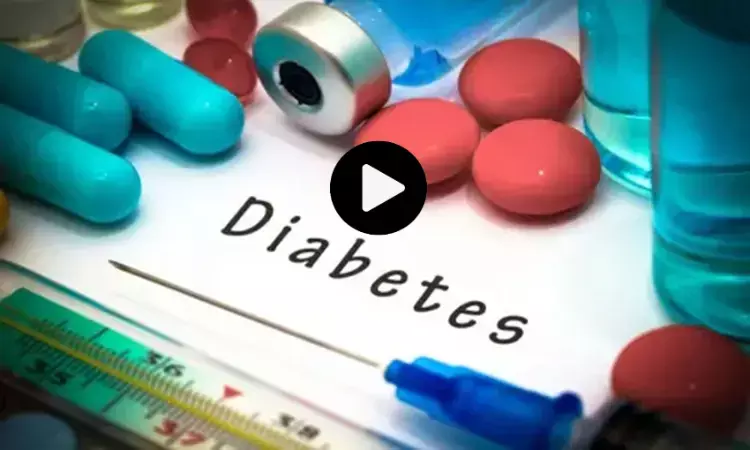- Home
- Medical news & Guidelines
- Anesthesiology
- Cardiology and CTVS
- Critical Care
- Dentistry
- Dermatology
- Diabetes and Endocrinology
- ENT
- Gastroenterology
- Medicine
- Nephrology
- Neurology
- Obstretics-Gynaecology
- Oncology
- Ophthalmology
- Orthopaedics
- Pediatrics-Neonatology
- Psychiatry
- Pulmonology
- Radiology
- Surgery
- Urology
- Laboratory Medicine
- Diet
- Nursing
- Paramedical
- Physiotherapy
- Health news
- Fact Check
- Bone Health Fact Check
- Brain Health Fact Check
- Cancer Related Fact Check
- Child Care Fact Check
- Dental and oral health fact check
- Diabetes and metabolic health fact check
- Diet and Nutrition Fact Check
- Eye and ENT Care Fact Check
- Fitness fact check
- Gut health fact check
- Heart health fact check
- Kidney health fact check
- Medical education fact check
- Men's health fact check
- Respiratory fact check
- Skin and hair care fact check
- Vaccine and Immunization fact check
- Women's health fact check
- AYUSH
- State News
- Andaman and Nicobar Islands
- Andhra Pradesh
- Arunachal Pradesh
- Assam
- Bihar
- Chandigarh
- Chattisgarh
- Dadra and Nagar Haveli
- Daman and Diu
- Delhi
- Goa
- Gujarat
- Haryana
- Himachal Pradesh
- Jammu & Kashmir
- Jharkhand
- Karnataka
- Kerala
- Ladakh
- Lakshadweep
- Madhya Pradesh
- Maharashtra
- Manipur
- Meghalaya
- Mizoram
- Nagaland
- Odisha
- Puducherry
- Punjab
- Rajasthan
- Sikkim
- Tamil Nadu
- Telangana
- Tripura
- Uttar Pradesh
- Uttrakhand
- West Bengal
- Medical Education
- Industry
Tirzepatide aids weight loss, improves metabolic health in type 2 diabetes: Study

USA: Tirzepatide use in patients with type 2 diabetes (T2D) positively impacts metabolic profile that can only be partially attributed to weight loss, show results from a recent study. Tirzepatide activates both the glucagon-like peptide 1 (GLP-1) and glucose-dependent insulinotropic polypeptide (GIP) receptors in the body.
The study, published in the Journal of Clinical Endocrinology & Metabolism found that tirzepatide improves glycemic control and reduces body weight, and uniquely modulates metabolites associated with T2D risk and metabolic dysregulation in a direction consistent with improved metabolic health.
Valentina Pirro, Lilly Research Laboratories, Indianapolis, IN, USA, and colleagues aimed to assess plasma metabolome changes mediated by tirzepatide in a post hoc analysis.
Phase 2b trial participants were randomly assigned to receive weekly subcutaneous tirzepatide (1, 5, 10, 15 mg), dulaglutide (1.5 mg), or placebo for 26 weeks. Post hoc exploratory metabolomics and lipidomics analyses were performed.
The researchers then assessed changes in metabolite levels in response to tirzepatide against baseline levels, dulaglutide, and placebo using multiplicity correction.
Key findings include:
- At 26 weeks, a higher dose tirzepatide modulated a cluster of metabolites and lipids associated with IR, obesity, and future T2D risk.
- Branched-chain amino acids, direct catabolic products glutamate, 3-hydroxyisobutyrate, branched-chain ketoacids, and indirect byproducts such as 2-hydroxybutyrate decreased compared to baseline and placebo.
- Changes were significantly larger with tirzepatide compared with dulaglutide and directly proportional to reductions of HbA1c, homeostatic model assessment 2-IR indices, and proinsulin levels.
- Proportional to metabolite changes, triglycerides and diglycerides were lowered significantly compared to baseline, dulaglutide, and placebo, with a bias toward shorter and highly saturated species.
"Tirzepatide reduces body weight and improves glycemic control and uniquely modulates metabolites associated with T2D risk and metabolic dysregulation in a direction consistent with improved metabolic health," wrote the authors.
Reference:
Valentina Pirro, Kenneth D Roth, Yanzhu Lin, Jill A Willency, Paul L Milligan, Jonathan M Wilson, Giacomo Ruotolo, Axel Haupt, Christopher B Newgard, Kevin L Duffin, Effects of Tirzepatide, a Dual GIP and GLP-1 RA, on Lipid and Metabolite Profiles in Subjects With Type 2 Diabetes, The Journal of Clinical Endocrinology & Metabolism, 2021;, dgab722, https://doi.org/10.1210/clinem/dgab722
Dr Kamal Kant Kohli-MBBS, DTCD- a chest specialist with more than 30 years of practice and a flair for writing clinical articles, Dr Kamal Kant Kohli joined Medical Dialogues as a Chief Editor of Medical News. Besides writing articles, as an editor, he proofreads and verifies all the medical content published on Medical Dialogues including those coming from journals, studies,medical conferences,guidelines etc. Email: drkohli@medicaldialogues.in. Contact no. 011-43720751


